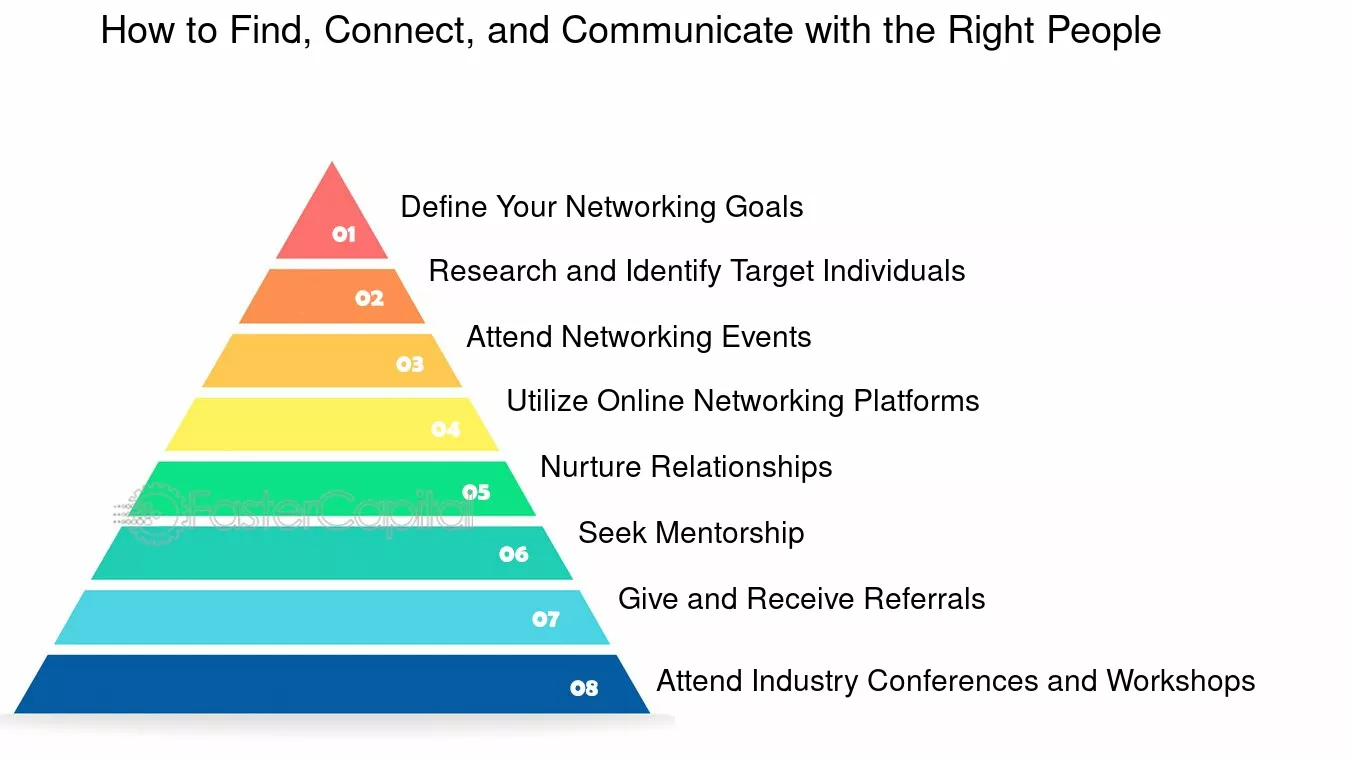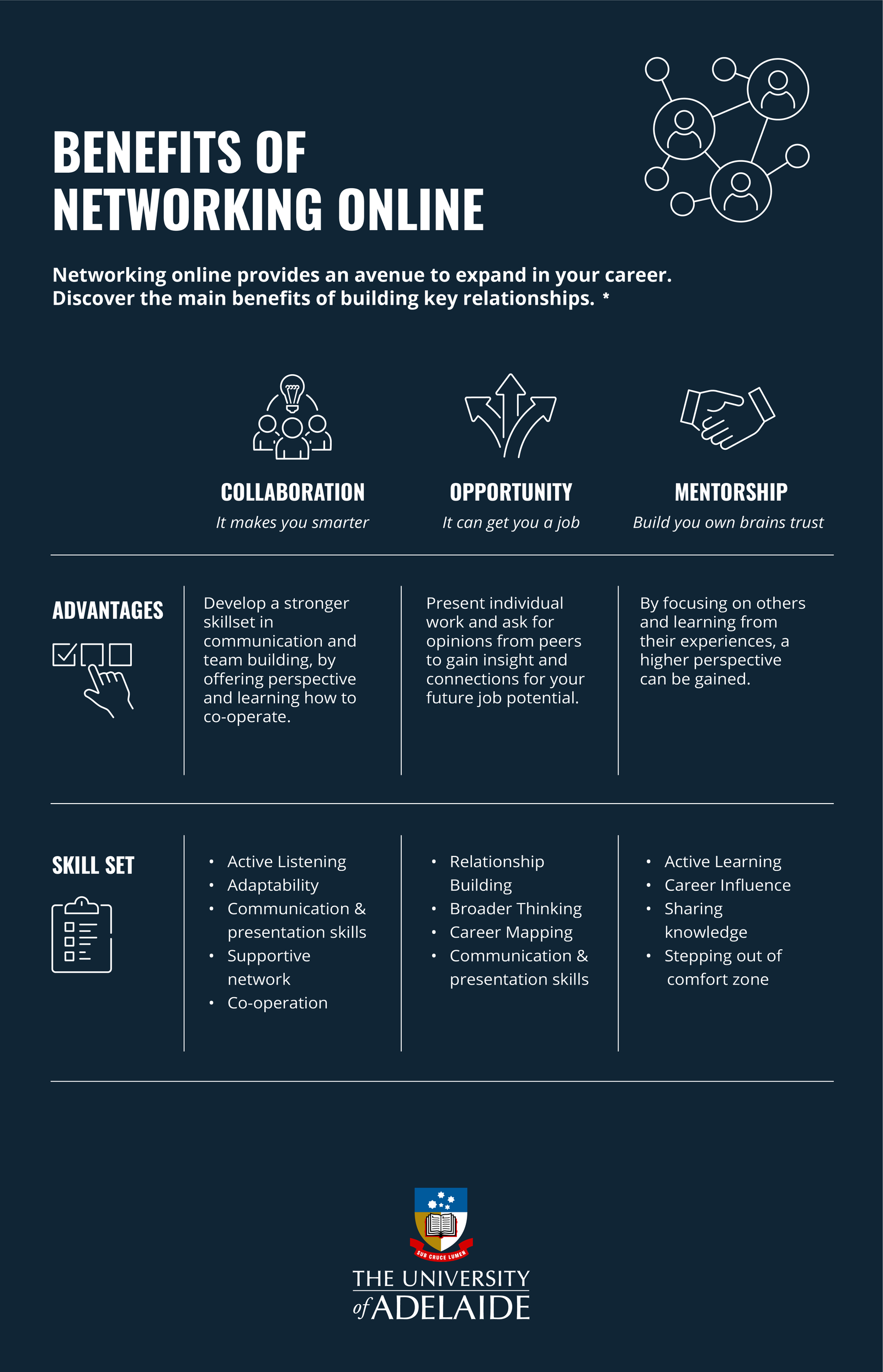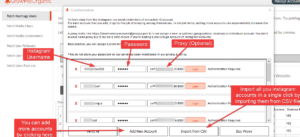A strong business network can be a huge boost to your career and the main tool for seeking new opportunities.
Where do you start to build one, and what can help you connect with the right people?

Finding the Right People: The Guide
Networking is everything in many industries; the more extensive and diverse your list of business contacts, the more opportunities are likely to come your way through the right people you’re connected with.
But,
🔸How do you start building a business contacts list?
🔸Where do you actually find them, the ones who can truly benefit your career?
🔸What does it take to build a network of meaningful, mutually valuable connections?

First off, what characteristics should a person have to be considered as relevant to the business contacts list?
Basically, anyone who can help with your career or business qualifies.
But with no ability to predict how and if they can be helpful, the following criteria should be initially considered desirable:
⚡Relevance to your field or goals:- They work in the same industry or in a related one where collaborations, referrals, or insights could be mutually beneficial.
⚡Influence or access:- They hold a position or have a network that gives them access to people, resources, or opportunities you wouldn’t easily reach on your own.
⚡Credibility and reputation:- They’re known for being reliable, skilled, or innovative in their field. Aside from the learning opportunity, which is always a benefit, having their name associated with yours adds professional weight.
⚡Willingness to engage:- They’re open to conversations, willing to share advice, and support others. You need people who reciprocate, not just collect contacts.
⚡Shared values or work ethic:- They approach work and professional relationships in a way that aligns with your standards. This helps build trust and makes cooperation easier.
This business contacts list can help you define the right person in a vast pool of possible connections and start building your network.
The Benefits You Might Not Think About
Beyond unlocking career opportunities, which is the main purpose of networking for many, there is more to it.
Strong business contacts offer a range of quieter but equally valuable benefits. They broaden your perspective, exposing you to industry trends, tools, and strategies that may otherwise stay off your radar.
Interacting with other professionals in your industry can also build confidence, as you get validation or constructive challenge for your ideas.

During times of transition, like career changes or launching new projects, a well-nurtured network provides not just practical support but emotional reassurance.
You learn through others’ experiences, absorbing lessons from their successes and failures.
And, importantly, the right connections can boost your visibility, ensuring your name surfaces in conversations, even when you’re not in the room.
Sounds great, doesn’t it? So, how to get in contact with the right people?
7 Ways to Find the Right People for Your Business Network
Building a strong network begins with knowing where and how to look. Whether you’re a freelancer, recruiter, or entrepreneur, finding the right people can accelerate your professional growth.
Thankfully, today’s digital infrastructure offers plenty of avenues, from online platforms to in-person events where you can connect with valuable people.
Below are seven effective strategies to help you expand your network with intention and ease.
1. Participate on LinkedIn and other professional platforms
LinkedIn remains a go-to space for discovering potential collaborators, mentors, or clients.
Use advanced filters to search by industry, title, or mutual connections. Don’t just send connection requests, engage with their content, share insights, and offer value.
Browse companies’ pages as well. Not every professional is eager to dedicate their valuable time to socializing through LinkedIn, but it doesn’t mean they’re opposed to the mere idea.
Some platforms can reveal company contacts of professionals that might otherwise be hard to find, especially in niche industries.
2. Attend industry events and conferences
Even in the current digital age, real-life interactions hold immense value. Attend meetups, expos, and workshops related to your field. These events gather professionals who are open to networking, learning, and sharing resources.
Follow up after the event with a short message referencing your conversation. This makes it easier to turn a brief chat into a lasting professional relationship.
3. Join online communities and niche forums
Slack groups, Discord servers, Reddit threads, and Facebook groups exist for nearly every profession. Find spaces where your peers and thought leaders gather to exchange ideas and opportunities.
These communities are often more relaxed, giving you a chance to build connections over shared interests before making a direct professional ask.
4. Use email-finding tools
When you’re trying to reach out directly, tools like GrowMeOrganic & SignalHire can help you find a person’s email address based on their name and company.
Just make sure your message is polite, concise, and personalized; no one wants to feel like they’re being spammed.
A well-written cold email can open doors when sent respectfully and strategically. Many platforms offer guides on writing cold emails that deliver results, so with some time and effort put into it, you have great chances to enhance your network.
5. Explore company websites and press releases
Often overlooked, a company’s website is a treasure trove of networking data. Check the “About Us” or “Team” sections to identify decision-makers.
Recent press releases or blog posts may also highlight key team members. These sources are helpful when you’re wondering how to get business contacts without relying solely on third-party platforms.
6. Ask for introductions
Referrals are a powerful networking tool. If you know someone with a solid network, don’t hesitate to ask for a warm intro.
People are more likely to respond to a familiar name than a cold message. Be clear about why the introduction matters and how you intend to bring value to the conversation, not just what you hope to gain.
7. Collaborate and create
One of the most authentic ways to build connections with people is by working together. Offer to co-host an event, write a guest post, or join a collaborative project. This not only deepens relationships but also showcases your skills.
Over time, these shared efforts evolve into trusted connections that become valuable parts of your professional ecosystem.
While you are gathering your business contact list, don’t forget that for networking to work properly, your connections with people should be mutually beneficial.
Think about what you can offer, which problem you can help solve, or what areas of their work will improve with your skill set applied. Just asking for favors without returning them is a losing strategy in the long run.
How to Manage Business Contacts
Building a strong network is only half the equation. Knowing how to manage it efficiently is what turns connections into opportunities.
Without proper organization and thoughtful follow-up, even the most promising business contacts can fade into lost potential.
Whether you’re a solo professional or part of a large team, managing your network effectively ensures you’re always ready to reach out, collaborate, or ask for support when it matters most.
Here’s how to stay intentionally strategic about your network:
1. Centralize your contact information
Don’t rely on scattered spreadsheets, notebooks, or memory. Use a contact management system (even a simple CRM or dedicated app) to store details like names, roles, locations, relevant notes, and dates of last contact.
A centralized system helps ensure you don’t lose track of valuable contacts as your network grows.
2. Segment your contacts by relevance or purpose
“The customer changes every day, so we need to remain keenly interested in the customer and evolve to remain relevant.” – Mike Motz.
Instead of keeping everyone in one pool, categorize them: potential collaborators, mentors, leads, media, suppliers, etc.
This segmentation allows for more targeted communication and better recall when specific needs arise, like launching a product or seeking expert insight.
3. Set reminders for check-ins and follow-ups
Even occasional check-ins can keep your connections alive. Use calendar tools or CRM features to set reminders to reconnect, congratulate them on milestones, or simply check in.
Staying in touch doesn’t require constant interaction; consistency and sincerity matter more.

4. Keep notes on your interactions
After a meeting, write down key points: what you discussed, what they’re working on, and what they mentioned about their goals or interests. These small details help you build rapport and show genuine interest.
Over time, this practice turns basic business contacts into meaningful and productive professional relationships.
5. Maintain a professional tone. But with a human touch
Especially if you’re managing a high volume of business contacts, don’t let things get too cold or robotic.
Even brief messages should feel tailored. Remember that people respond best to warmth and clarity.
6. Respect privacy and data security
If you’re storing persons’ email addresses or sensitive company info, ensure you’re compliant with privacy regulations (like GDPR) and that your tools are secure. After you’ve worked hard to find decision-makers, make sure you treat the information wisely.
A business contacts list is a powerful asset, but also a responsibility. Protect your contacts’ data like you would protect your own; otherwise, you risk losing their trust.
7. Regularly review and update your database
Your network isn’t static. Remove outdated entries, add new ones, and note status changes. A clean, current list helps you avoid missed chances and wrong assumptions and keeps you efficient when you need to act quickly.
Conclusion
Building a network of valuable business contacts isn’t just about gathering emails and phone numbers; it’s about staying connected intentionally and with purpose.
With a thoughtful approach, your network becomes more than a list of names; it turns into a powerful support system, opportunity generator, and strategic asset.
About Post Author
Rohan Chaubey
Startup Growth Advisor | World Record Holder | Bestselling Author of The Growth Hacking Book Series







